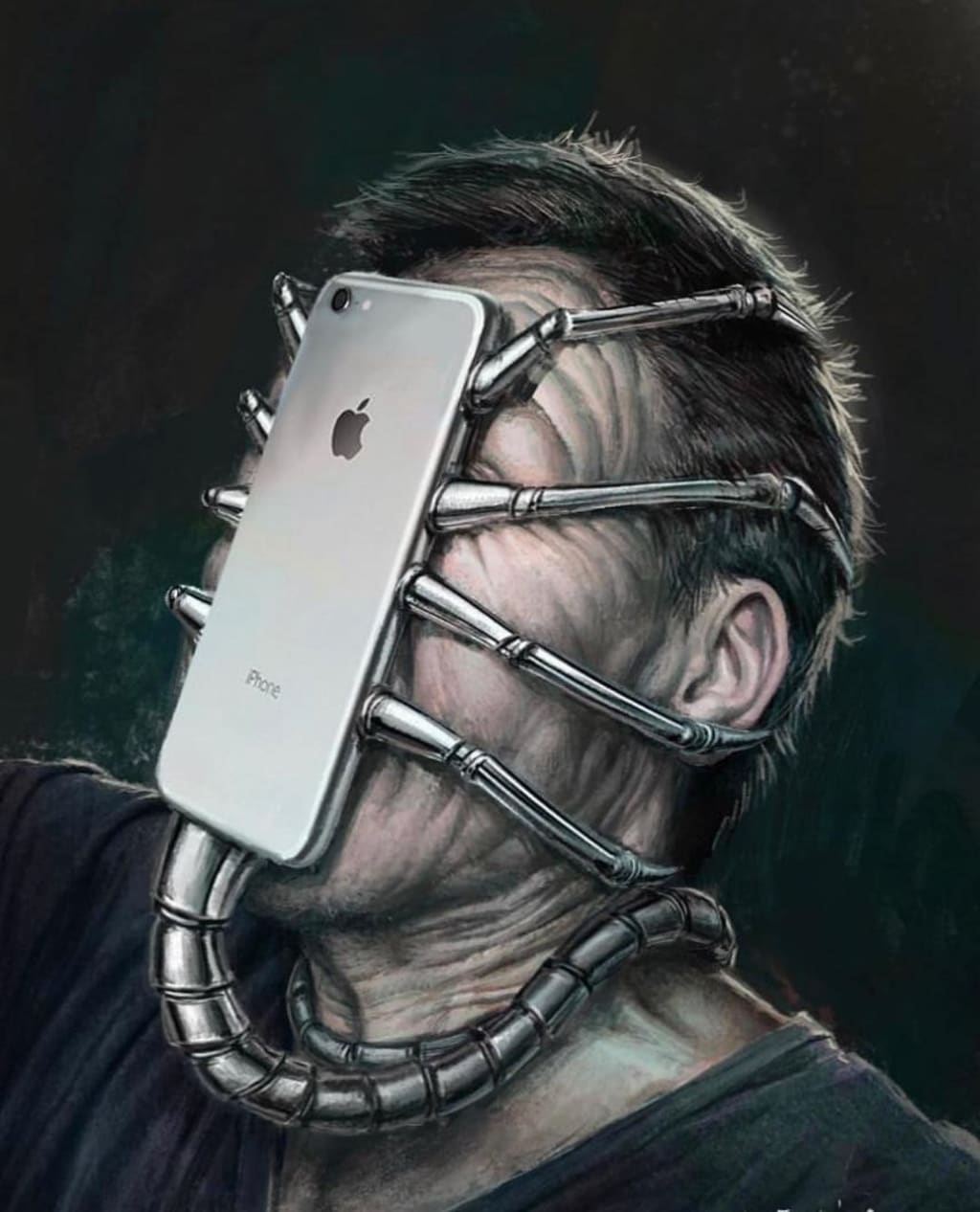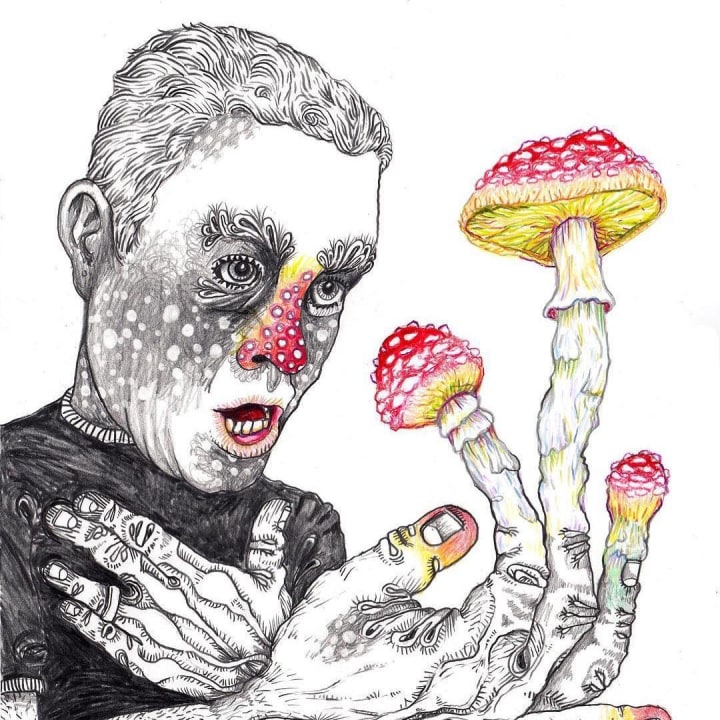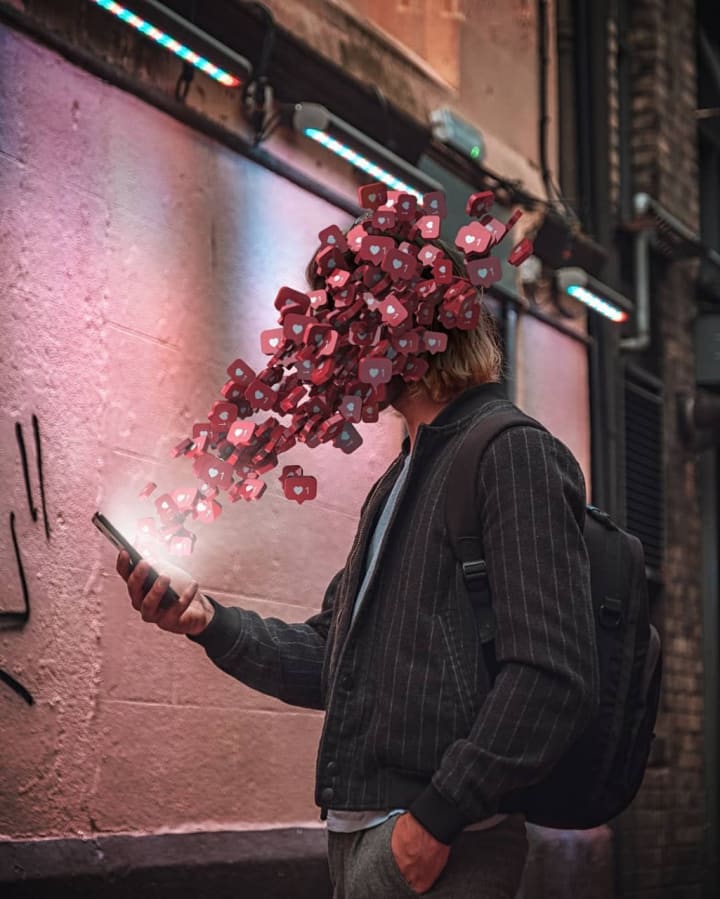What Is Social Media Addiction?
Although many people habitually use social media, very few are genuinely addicted. To determine if someone is at risk of developing an addiction to social media, ask these 6 questions:

Checking and scrolling through social media has become an increasingly popular activity over the last decade. Although the majority of peoples’ use of social media is non-problematic, there is a small percentage of users that become addicted to social networking sites and engage in excessive or compulsive use. In fact, psychologists estimate that as many as 5 to 10% of Americans meet the criteria for social media addiction today. Social media addiction is a behavioral addiction that is characterized as being overly concerned about social media, driven by an uncontrollable urge to log on to or use social media, and devoting so much time and effort to social media that it impairs other important life areas.
Addictive social media use will look much like any other substance use disorder and may include mood modification (i.e., engagement in social media leads to a favorable change in emotional states), salience (i.e., behavioral, cognitive, and emotional preoccupation with social media), tolerance (i.e., ever-increasing use of social media over time), withdrawal symptoms (i.e., experiencing unpleasant physical and emotional symptoms when social media use is restricted or stopped), conflict (i.e., interpersonal problems ensue because of social media usage), and relapse (i.e., addicted individuals quickly revert back to their excessive social media usage after an abstinence period).
The phenomena of social media addiction can be largely attributed to the dopamine-inducing social environments that social networking sites provide. Social media platforms such as Facebook, Snapchat, and Instagram produce the same neural circuitry that is caused by gambling and recreational drugs to keep consumers using their products as much as possible. Studies have shown that the constant stream of retweets, likes, and shares from these sites cause the brain’s reward area to trigger the same kind of chemical reaction seen with drugs like Cocaine. In fact, neurosciences have compared social media interaction to a syringe of dopamine being injected straight into the system.
How Social Media Affects The Brain

Due to the effect that it has on the brain, social media is addictive both physically and psychologically. According to a new study by Harvard University, self-disclosure on social networking sites lights up the same part of the brain that also ignites when taking an addictive substance. The reward area in the brain and its chemical messenger pathways affect decisions and sensations. When someone experiences something rewarding or uses an addictive substance, neurons in the principal dopamine-producing areas in the brain are activated and dopamine levels rise. Therefore, the brain receives a “reward” and associates the drug or activity with positive reinforcement.
This is observable in social media usage; when an individual gets a notification, such as a like or mention, the brain receives a rush of dopamine and sends it along reward pathways, causing the individual to feel pleasure. Social media provides an endless amount of immediate rewards in the form of attention from others for relatively minimal effort. The brain rewires itself through this positive reinforcement, making people desire likes, retweets, and emoticon reactions.
Another perpetuating factor of social media addiction is the fact that the reward centers of the brain are most active when people are talking about themselves. In the non-virtual world, it’s estimated that people talk about themselves around 30 to 40% of the time; however, social media is all about showing off one’s life and accomplishments — so people talk about themselves a staggering 80% of the time. When a person posts a picture they may receive positive social feedback, which stimulates the brain to release dopamine, rewarding that behavior and perpetuating the social media habit.
Social media use becomes problematic when someone views social networking sites as an important coping mechanism to relieve stress, loneliness, or depression. Social media use provides these individuals with continuous rewards that they’re not receiving in real life, so they end up engaging in the activity more and more. This continuous use eventually leads to multiple interpersonal problems, such as ignoring real life relationships, work or school responsibilities, and physical health, which may then exacerbate an individual’s undesirable moods. This then causes people to engage in the social networking behavior even more as a way of relieving dysphoric mood states. When social network users repeat this cyclical pattern of relieving undesirable moods with social media use, the level of psychological dependency on social media increases.
Recognizing A Social Media Addiction

Although many people habitually use social media, very few are genuinely addicted. To determine if someone is at risk of developing an addiction to social media, ask these 6 questions:
Do they spend a lot of time thinking about social media or planning to use social media?
Do they feel urges to use social media more and more?
Do they use social media to forget about personal problems?
Do they often try to reduce use of social media without success?
Do they become restless or troubled if unable to use social media?
Do they use social media so much that it has had a negative impact on their job or studies?
A “yes” to more than 3 of these questions may indicate the presence of a social media addiction.
A digital detox, a period of time during which someone significantly reduces the time spent using electronic devices such a smartphones or computers, could be a wise precaution. This can include simple steps, such as turning off sound notifications and only checking social media sites once an hour. Other changes can include having periods in the day where there is self-imposed non-screen time, such as during meal times, or leaving the phone in a separate room at night so as not to disturb sleep. This allows for a restored focus on social interaction in the physical world and reduces dependency on networking sites.
Social Media And Mental Health

Research has shown that there is an undeniable link between social media use, negative mental health, and low self-esteem. While social media platforms have their benefits, using them too frequently can make people feel increasingly unhappy and isolated. These negative emotional reactions are not only produced due to the social pressure of sharing things with others but also the comparison of material things and lifestyles that these sites promote.
On Instagram and Facebook, users see curated content: advertisements and posts that are specifically designed to appeal to users based on their interests. Users may see others posting about their great jobs, excellent partners, or beautiful homes and feel happy or inspired as a result. Others, however, may see these pictures and feel jealous, depressed, or even suicidal due to the fact that their own life is not as “perfect” as those that they see on Facebook or Instagram.
Recent studies have found that frequent social network users believe that other users are happier and more successful than they are, especially when they do not know them very well in real life. Social media facilitates an environment in which people are comparing their realistic offline selves to the flawless, filtered, and edited online versions of others, which can be detrimental to mental well-being and perception of self. Excessive social media use can not only cause unhappiness and a general dissatisfaction with life in users but also increase the risk of developing mental health issues such as anxiety and depression. Constantly comparing oneself to others can lead to feelings of self-consciousness or a need for perfectionism and order, which often manifests as social anxiety disorder.
Another aspect of social anxiety triggered by online media use is the fear of missing out (FOMO), the extreme fear of not being included or missing a social event. Users may see pictures of parties to which they were not invited, or glimpses of fun outings that they were unable to attend because of work or school obligations, and experience anxiety that no one misses them as a result — or fear that they will be forgotten since they’re not there. FOMO can take a toll on self-esteem and lead to compulsive checking of social media platforms to ensure that an individual isn’t missing out on anything, which can cause problems in the workplace and in the classroom. A study conducted by Harvard University found that social media has a significantly detrimental effect on the emotional well-being of chronic users and their lives, negatively impacting their real-life relationships and academic achievement.
About the Creator
Anmol Shukla
Writing gives me a freedom that I do not find anywhere else! #writing
〰️ Fiction (Horror/Thriller)
〰️ Non-Fiction (Nutrition and True Crime)
〰️ Poetry






Comments
There are no comments for this story
Be the first to respond and start the conversation.